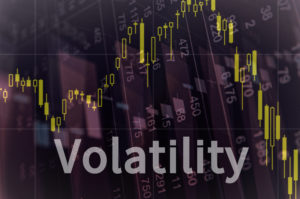A managed Forex account must be judged based on absolute returns. However, the performance must be consistent with the Forex funds strategy. The concept of “absolute returns” is for the Forex account to yield consistent, positive returns over an extended period. The managed Forex account, or Forex fund, can be compared to a fixed income fund, or an asset-backed lending fund based on its absolute return over time.
What Is A Forex Trading Advisor / Manager?
A Forex trading adviser, or trading manager, is an individual or entity that, for compensation or profit, advises others on the value of or the advisability of buying or selling currencies for accounts explicitly for profit. Providing advice can include exercising trading authority over a customer’s account via a limited, revocable power of attorney. A Forex trading advisor can be an individual or a corporate entity. Forex managed account programs can be run by internal trading advisors, i.e., traders who work directly for the Forex managed account program or advised by outside managers. The terms “manager,” “trader,” “advisor,” or “trading advisor” are interchangeable.
The following is a fictional example of how a hedge fund would work with a trading advisor. A hedge fund called ACME Fund, Inc. has raised $50-million to be traded in the Forex markets. ACME charges their clients a 2% management fees and 20% of new equity highs as an incentive fee. In the professional trading community, this is called charging “2-and-20”. ACME needs to hire a Forex trader to start trading the raised capital, so ACME reviews a 10-different currency trading advisor’s track record. After doing their due diligence and reviewing the trading advisors’ key metrics, such as peak-to-trough drawdowns and sharp ratios, ACME analysts think the fictional firm AAA Trading Advisors, Inc. is the best fit for the fund’s risk profile. ACME offers AAA a percentage of the 2% management fee and the 20% incentive fee. The percentage that the hedge fund will pay an outside trading advisor is always negotiated. Depending on the trading manager’s track record and capacity to manage new capital, a trading advisor could earn over 50% of what the hedge fund is charging the clients to manage their funds.
Judging the Performance of a Forex Managed Account Trader: Is the Track Record the Only Thing that Matters?

Seeking out positive returns.
Investors should take particular note of the Forex manager record of performance; however, this in itself should not be the only reason for choosing a specific Forex trading advisor. The disclosure document should spell out the Forex managed account manager market approach and trading style. This information should be carefully reviewed along with the track record when the investor chooses a particular Forex trader. Strong performance in the short term may be nothing more than good fortune. Positive performance over a long time., and over many trades, may indicate that the trader’s philosophy and style are more robust than his competitors. This is especially true if the track record includes periods of bull, bear, and flat trading ranges. It is important to remember that past performance is not necessarily indicative of future results.
A few metrics to take careful note of when reviewing a track record:
- How long is the track record?
- Is it skill or is the fund manager lucky?
- Are the results sustainable?
- Worst peak to valley drawdown: Could you still make money even if the manager has a positive return for the year?
- Assets under management: Is the manager trading and an insignificant amount of money, or has his track record proved to be scalable and sustainable?
Managed Forex Accounts and Diversified Portfolios

Forex can help decrease risk in an investment portfolio through diversity.
With prudent allocation, a managed Forex account may help reduce the overall risk of a portfolio. A sensible investor should ensure that at least a portion of their portfolio is allocated to an alternative asset that has the potential to perform well when other parts of the portfolio may be underperforming.
Other potential benefits of a managed Forex account may include:
• Historically competitive returns over the longer term
• Returns independent of traditional stock and bond markets
• Access to global markets
• The unique implementation of conventional and non–traditional trading styles
• Potential exposure to as many as one hundred and fifty markets globally
• The Forex market typically has a high degree of liquidity.
If suitable to a client’s objectives, devoting twenty to forty-five percent of a typical portfolio to alternative investments may increase returns and lower volatility. Because alternative investments may not react in the same way as stocks and bonds to market conditions, they can be used to diversify investments across different asset classes, potentially resulting in less volatility and less risk. While it is true that many Forex managed accounts have historically profited, there is no guarantee that an individual managed Forex program will continue to benefit in the future. There is also no guarantee that an individual managed Forex account will not suffer losses in the future.
